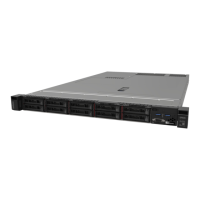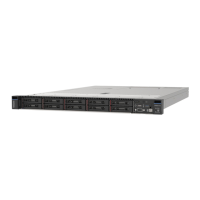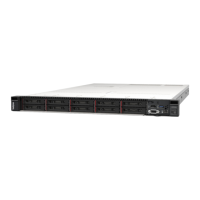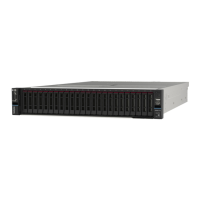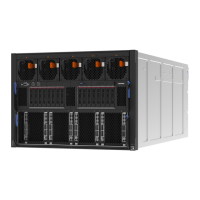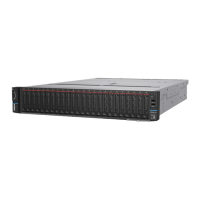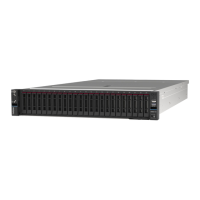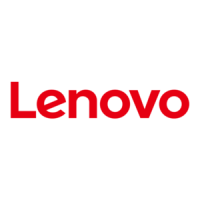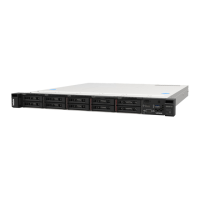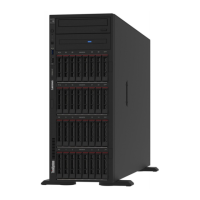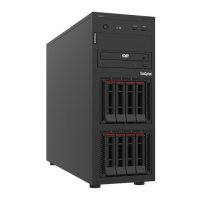https://sysmgt.lenovofiles.com/help/topic/lxpm_frontend/lxpm_product_page.html.
Remove a hot-swap EDSFF drive
Use this information to remove an EDSFF drive.
About this task
The following describes the information that you must consider for this task:
• Ensure that you have backed up data on your drive, especially if it is part of a RAID array.
– Before you make changes to drives, RAID adapters, or drive backplanes, back up all important data
that is stored on the drives.
– Before you remove any component of a RAID array, back up all RAID configuration information.
• If one or more NVMe drives are to be removed, it is recommended to disable them first in Safely Remove
Hardware and Eject Media (Windows) or filesystem (Linux). Log in to XClarity Controller and go to the
Storage menu to identify and locate the drive type and corresponding drive bay number. If the drive bay
numbers come with the term “NVMe”, it indicates that the installed drives are NVMe drives.
Attention:
• Read
“Installation Guidelines” on page 45 and “Safety inspection checklist” on page 46 to ensure that you
work safely.
• Prevent exposure to static electricity, which might lead to system halt and loss of data, by keeping static-
sensitive components in their static-protective packages until installation, and handling these devices with
an electrostatic-discharge wrist strap or other grounding system.
• To ensure that there is adequate system cooling, do not operate the server for more than two minutes
without either a drive or a drive filler installed in each bay.
Watch the procedure
A video of this procedure is available at YouTube:
https://www.youtube.com/playlist?list=PLYV5R7hVcs-
DrpxDWLMfgtXO4O6BVYTim
.
Procedure
Step 1. If the security bezel is installed, remove it first. See
“Remove the security bezel” on page 183.
102
ThinkSystem SR635 V3 User Guide
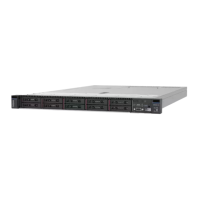
